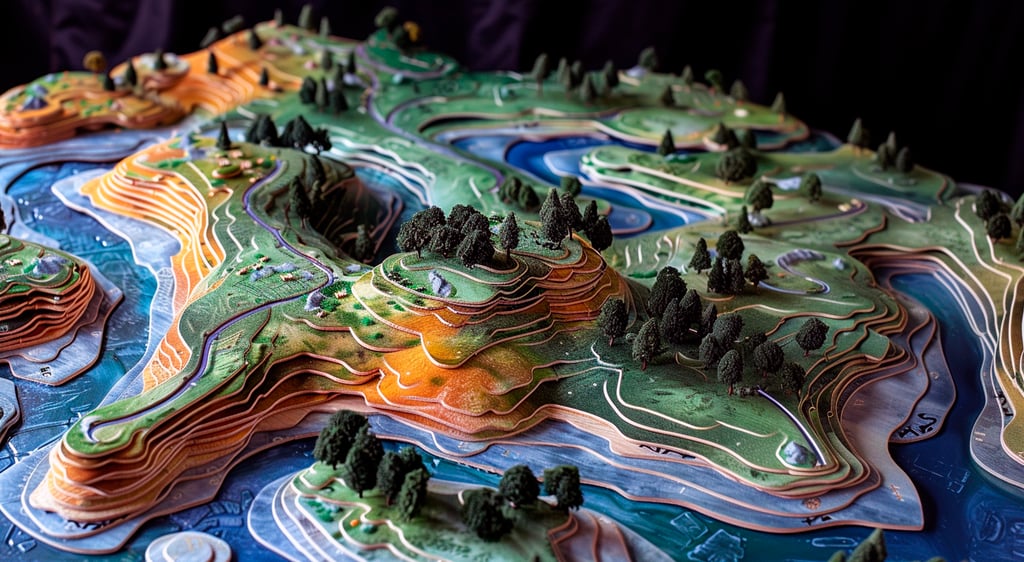Yom el-Ard
Palestinian Land Day and the necessity of treating land as a living body.
Ely Tahan
3/31/20253 min read


Land Day, also known as Yom al-Ard in Arabic, is a significant event in Palestinian history that commemorates the struggle for land and self-determination. The history of Land Day dates back to March 30, 1976, when a wave of protests and demonstrations swept across the Galilee region in northern Israel. On that day, thousands of Palestinians gathered in towns and villages to protest against the land expropriation plans the Israeli government had begun implementing since the early 1970s. The colonial authorities responded to the protest by force and in the ensuing violence, six Palestinian citizens of Israel were killed and many more injured. These events marked a turning point in the struggle for land and self-determination, becoming a powerful symbol of resistance and resilience.
Aldo Leopold reminds us that land is not just soil but a vibrant living entity that encompasses the intricate web of relationships between the full range of organisms that produce it and make it their habitat. To perceive and treat land as a living body is not only a moral imperative, but a necessity for any entity, species or genus contending to be more than a transient drift in its perpetuity. Exceptions to this self-evident rule are doomed to the temporal span of a disease or the blemish of a metastatic spread, passing phenomena in the longevity of the biome. In the eventuality of this ailment, a dedicated physician of the land such as Leopold demonstrates the potential for degraded landscapes to be revitalized and transformed into thriving ecosystems. It is a discipline with its own Hippocratic oath committed to cure damaged environments impoverished by eroded soils, depleted wildlife habitats and a lack of biodiversity. Its dictum is that it is only the interconnectedness of all living systems that is the true definition of land.
In the throes of a malady, the idea that the resources available to a common living body will inevitably be overexploited and degraded due to individual self-interest, leads to the conclusion that private property and technological solutions are the necessary tools to manage it. The focus on the interests, economic gain, and strategic advantage of nations seeking to expand their influence and control over territories and resources of others, prioritizes short-term gain over the long-term sustainability of the land and its inhabitants. Within this narrow time frame, often characterized by the resurgence of autocratic and despotic regimes, a recurring malaise is mistaken for an endemic condition. The perspective gets further distorted with the corrupted body of the planet demonizing its own cure and the complex system where each part influences and is influenced by others is broken down into a collection of individual components, some of which are deemed dispensable and marked for eradication. The anthropocentric, utilitarian and exceptionalist stances contributing to this parcelization return to the false assumption of a blank slate of nature, no matter how mired they are in the crushing of their opposition and resistance, making it normal to dispose of what is unwanted from a planet that has become itself a disposable commodity. The inversion is almost complete with the US currently bombing Yemen for obstructing the last crusade of Western colonialism, and the Zionist project claiming there is nothing to stop it from reaching its zenith, nothing short of world dominion, unless it is actually on a refracted course, steered by its unrelenting hubris and plunging head down to a fateful crash.
From a land-oriented perspective, the suffering of aggressed populations are hemorrhages breaking out in the desensitized tissue of world affairs, bandaged in the analgesic gauze of globalization, imparting the notion that economic growth and technological advancement can somehow justify or mitigate the destruction of ecosystems and the displacement of communities, thereby creating a culture of indifference. Meanwhile Lebanon, Syria and Iraq are being torn apart by politicians who pretend to have the authority and the mandate to overcome any limitation, whether judicial, environmental, or moral. The cookie-cut map of nations sinks its sharp edges into the resilient geography of the earth, leaving festering wounds and blood-stained scars to run along the US-Mexico border wall and the Israeli separation barrier. A callous world order, by a sheer pirouette on the charge of terrorism, promotes the prolonged genocide in Gaza as a bitter but beneficial pill to swallow, normalizing the suffering of Palestinians as a necessary measure to ensure the security of the Israeli state with a stark justification of its most egregious behavior.
The divorce of politics from geography, of land management from cultural practices, and of the dictates of truth from the uses of power has created a world in which the western hegemonic autocrat is crowned with the sulfurous glow of a deferred but inevitable demise. On Palestinian Land Day, we are reminded that the struggle for land, self-determination, and human rights is not just a Palestinian issue, but a global one. It is a call to action, urging the international community to hold Israel accountable for its ongoing displacement and occupation of Palestinian lands and challenge the dominant narratives that justify displacement, occupation, and violence, in the anticipation of an equitable world, where the interconnectedness of land, culture, and community is recognized and respected.
Explore the artworks
of Ely Tahan on social media:
CONTACT
© 2025. All rights reserved.
